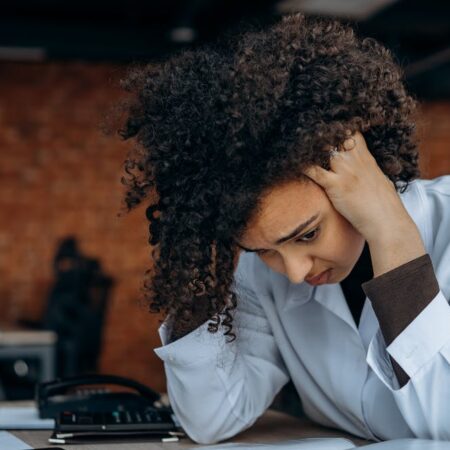Many of the Halloween masks and horror movies we see this month are meant to frighten us. It simply goes along with the holiday tradition. But did you know that other things happening in normal day-to-day routines may cause some individuals to experience extreme fear or excessive anxiety?
Diagnosed anxiety is a mental health disorder affecting millions of individuals from childhood through adulthood.”
According to Anxiety.org, some common symptoms related to anxiety include:
- Excessive, irrational, or uncontrollable feelings of worry and dread
- Sensations of panic and uneasiness for no apparent reason
- Obsessive thoughts
- Ritualistic behavior
- Trouble sleeping
- Heart palpitations
- Muscle tension
- Inability to remain calm
- Nausea
- Headaches
- Fatigue
- Trouble concentrating
Effective coping methods
Most of this list comes from psychologytoday.com, which summarizes several strategies others have mentioned as being helpful:
Make a problems list
One effective method of coping with anxiety is to make a list of problems to overcome. Then break each problem down into a series of tasks, and rank the tasks in order of difficulty. A simple example: A person with a phobia of spiders may first think about spiders, then look at pictures of spiders, then look at real spiders from a safe distance, and so on. Attempt the easiest task first and keep on returning to it day after day until you feel fairly comfortable with it. Give yourself as long as you need, then move on to the next task and do the same thing, and so on.
Trust God and His Word
In Romans 12:2, we read, “Do not conform to the pattern of this world, but be transformed by the renewing of your mind. Then you will be able to test and approve what God’s will is—his good, pleasing and perfect will.” As you learn to trust God, you’ll see how He has the power to change your thoughts and behavior completely. Go to the Lord in prayer, pour out your heart to Him, asking Him to take away your anxious feelings and bring about peace instead.
Use relaxation techniques
These relaxation techniques are very similar to those used to manage stress. One common and effective strategy, called ‘deep breathing’, involves modifying and regulating your breathing:
—Breathe in through your nose and hold the air in for several seconds.
—Then purse your lips and gradually let the air out. Repeat several times.
A second strategy that is often used together with deep breathing involves relaxation exercises:
—Lying on your back, tighten the muscles in your toes for 10 seconds, and then relax them completely.
—Do the same for your feet, ankles, and calves, gradually working your way up to your body until you reach your head and neck.
Other general strategies you can use for relaxing include: listening to classical music, taking a hot bath, reading a book or surfing the Internet, calling up or meeting a friend, or playing sports. As you can see, there is no shortage of things you can do.
 Implement simple lifestyle changes
Implement simple lifestyle changes
—Have a schedule and keep to it.
—Get plenty of sleep.
—Exercise regularly (for example, walking, swimming, yoga).
—Eat a balanced diet.
—Restrict your intake of coffee or alcohol.
—Take time to do the things you enjoy.
—Connect with others and share your thoughts and feelings with them.
Take your prescribed medications
If your anxiety is especially disabling, your doctor may start you on medication. These are not a cure for anxiety, but they can provide short-term relief from some of your symptoms. Their long-term use should be avoided because they carry a high risk of tolerance (needing more and more to produce the same effect) and dependence or addiction.
Seek professional help
If you continue to suffer from severe anxiety despite implementing some of these measures, you may want to seek professional help through a counseling center. You may also want to check with doctor’s offices or churches in your area for local centers.
The BabbCenter offers an extensive counseling staff that can address this issue of anxiety as well as a host of other mental health topics with you.
Call 615-824-3772 to schedule an appointment.

